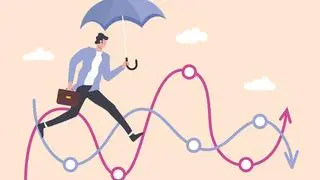I had an interesting conversation with a cab driver last week. The topic of our discussion was the metro rail project currently under construction in Chennai.
The driver was of the opinion that the project, once commissioned, would actually increase road traffic in the city! His logic was simple — more people would travel by car because they would expect others to take the train.
Now, his argument makes sense if more people buy cars, or if people at present leave their cars at home and travel by public transport.
But his argument made me wonder if road accidents would go up after the metro project is commissioned! Why?
Consider one of the most effective safety devices ever created — the car seat-belt.
This equipment has, indeed, saved lives of many drivers, especially in developed countries where high-speed crashes are not uncommon.
Researchers, however, maintain that deaths due to car accidents have not declined!
They argue that vehicle-safety measures prompt drivers to take more risk. That is, seat-belt prompts drivers to be less cautious.
Peltzman Effect
Psychologists call this behaviour risk compensation. It refers to our urge to take risk when we feel less vulnerable.
This counter-productive behaviour is also called as the Peltzman Effect, named after Sam Peltzman, an economist with the University of Chicago, who documented this behaviour among individuals.
Peltzman and others have shown that auto-safety standards saved the lives of drivers, but increased deaths of others such as cyclists and pedestrians, perhaps, due to reckless driving!
In some ways, this is equivalent to stating that we take risks when we have insurance!
Experts, in fact, argue that banks take more risk because they know they will be bailed out if they are faced with financial distress — a phenomenon that was dubbed as the too-big-to-fail effect during the 2008 sub-prime crisis.
One way to moderate risk compensation as it applies to drivers is to reward safe driving.
Insurance companies, for instance, offer no-claim bonus to safe drivers. But similar logic cannot be applied to portfolio managers!
Will you, as an investor, reward a portfolio manager for being safe? It is not that we do not want portfolio managers to take risk; for they have to take greater risk to beat the market. It is just that we do not want them to lose!
We are tuned to taking more risk when we feel secure.
That brings us to the metro rail project. If more people take the train, roads are less likely to be congested! Would that prompt you to be less cautious or drive at high speed?
(The author is the founder of Navera Consulting. He can be reached at enhancek@gmail.com )








Comments
Comments have to be in English, and in full sentences. They cannot be abusive or personal. Please abide by our community guidelines for posting your comments.
We have migrated to a new commenting platform. If you are already a registered user of TheHindu Businessline and logged in, you may continue to engage with our articles. If you do not have an account please register and login to post comments. Users can access their older comments by logging into their accounts on Vuukle.